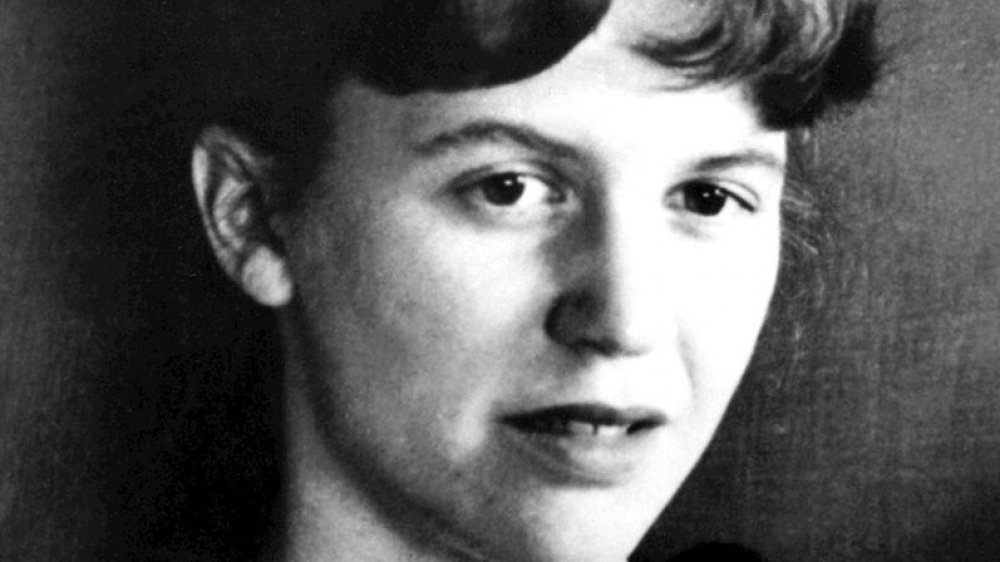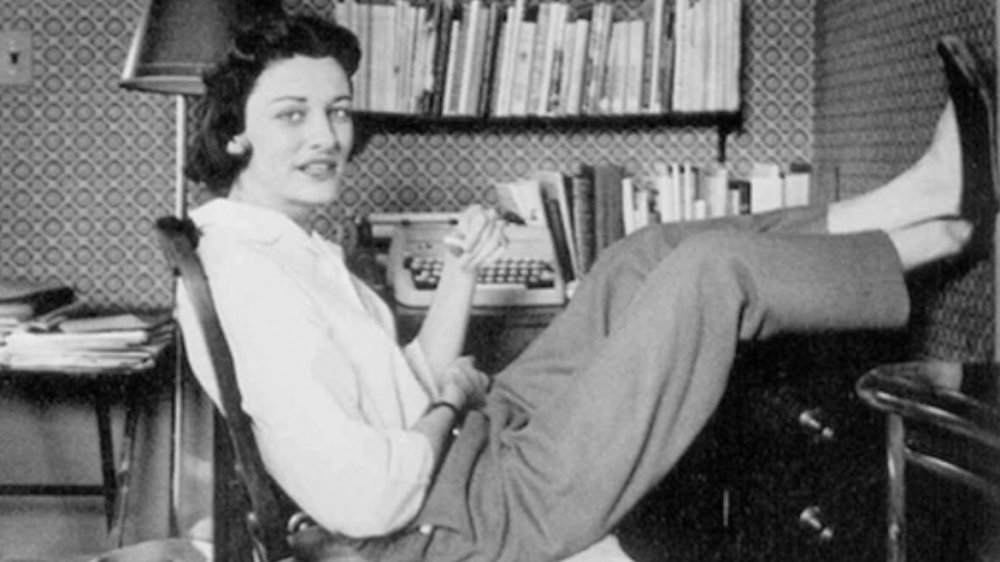The Tragic Relationship Of Sylvia Plath And Anne Sexton
Poets Sylvia Plath and Anne Sexton captivated the world with their words and their tragic endings. But through an inspirational professional relationship, they also captivated each other.
Plath and Sexton first met during a writer's seminar hosted by the writer Robert Lowell in 1958, according to This Recording. During the seminar, the pair would bond with fellow poets over drinks at the Boston-Ritz Carlton, where they found a shared fascination for the nature of death and the meaning it brought to life. These discussions led them to bond over the decision to pursue a life of poetry, and over martinis, they confided their shared tendencies towards self-harm.
Though Plath and Sexton had much in common, the paths they took towards establishing writing careers differed.
Plath was born in 1932 in Boston, according to her biography on Poets.org, and came to face to face with tragedy at an early age. Her father, a professor, died from complications of diabetes when she was eight. Throughout her childhood, Plath journaled consistently, and published poetry by the time she graduated high school. She graduated from Smith College in 1955 and moved to Cambridge. It was here that she met her future husband, the poet Ted Hughes.
Sexton was born in 1928 and spent her childhood in Newton, Massachusetts. Per Poets.org, she attended Garland Junior College for a year before marrying Alfred Muller Sexton II at age 19. Unlike Plath, Sexton did not start authoring poetry seriously until she was in her 20s.
The Plath to success is paved with good Anne Sextons
Sexton and Plath's encounter at the writing seminar was a clear "meeting of the minds", said Katherine Rose Keenan, an instructor at Cabrini College in a paper written for the Sylvia Plath Symposium in 2012. The women exchanged philosophies on poetry and life, learning from each other and benefiting from critique that would shape their future works. Plath incorporated elements of Sexton's poetic style within her own. Literary scholars noticed Plath's famous poem "Daddy" seemed to borrow rhythm and rhyme from Sexton's poem "My Friend, My Friend", for example.
Plath publicly cited Sexton as a strong influence for her second poetry collection "Ariel" and herself as a poet in a 1962 interview with The British Council.
"Peculiar private and taboo subjects I feel have been explored in recent American poetry, particularly by the poetess Anne Sexton," Plath said in the interview, "who writes about her experiences as a mother, a mother who has had a nervous breakdown, as an extremely emotional and feeling young woman ... her poems are wonderfully craftmanslike poems, and yet they have a kind of emotional and psychological depth which I think is something quite new, quite exciting."
Plath and Sexton both led creative lives marred by depression. Each would succumb to their mental illness, but not before creating beautiful work, and finding strength and camaraderie in each other's company over delicious martinis. The world of literature would be forever shaken and stirred.

